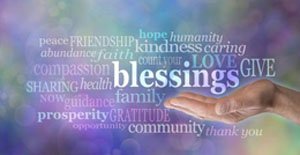Self-Deprecation vs Arrogance
By SHEPHERD HOODWIN
With chief features, it's not behaviors per se that define them but the motivations behind them. If your self-criticism is motivated by a fear of being criticized by others, it's arrogance. If it's motivated by a fear of being inadequate, it's self-deprecation.
In a previous discussion (Part I), I used running late as an example of impatience--my fear of missing out causes me to pack in too much before leaving. However, some people who aren't in impatience exhibit the same behavior. One friend is in greed and her rushing to get places is motivated by an effort to fill the void she feels inside herself. Another is in self-deprecation and races on the treadmill to try to become adequate. Again, you can't determine chief features by behavior alone; the reason for the behavior and the feel of it tells the tale.
In self-deprecation, it's hard to believe in yourself. You doubt your abilities. You fear that no matter how hard you work, you just don't have what it takes. Self-talk includes statements such as "I'm so stupid." You might not even make an effort because you figure "What's the use?" If people criticize you, you're inclined to agree with them. You might criticize yourself for your shortcomings, but your self-criticism doesn't have the urgency it has in arrogance to try to present yourself in a fashion that's immune from criticism; it's more about struggling to make the grade, perhaps prodding yourself to try harder.
In arrogance, you believe you're superior. Your self-criticism is designed to keep you in a "safe," superior position, like building a castle with a tall tower that will look invincible to potential rampaging invaders.
There are forms of shyness not sourced in arrogance. Many children are shy
simply because they're afraid of the unknown or lack social skills; they retreat into what seems safe. Artisans tend to be shy because they are so sensitive--they have five inputs and are easily overwhelmed. Even artisan celebrities such as Robin Williams have been described as actually being shy; he performs because that is his art, not for the attention it garners.
Some children give evidence of what their chief feature will be early on. When this is the case, it's probably a holdover from a past life. However, it isn't solidified until the teen years, around the time of the third internal monad (when we break away from our parents and home, establishing our own separate identity). This used to occur around the ages of 18-21, when most young people leave home, but it's happening earlier these days. Before then, teens may play with several chief features, which is one reason those years are so trying. Since arrogance and self-deprecation are on the same axis, it's especially easy to slide back and forth between them, and teens do this a lot--they can't decide whether they're superior or inferior.
Essence chooses a particular chief feature when it becomes clear that this is the area that needs the most work for at least the next several years. Chief features tend to stick for the rest of the lifetime if the person isn't consciously working on it. We each have all the chief features latent within us, but the one chosen is pushed to the surface. It "bundles" together several unresolved issues that share that vibration; it's more efficient to work on them all at once rather than one at a time.
Some people in exalted arrogance have an almost psychic ability to sense what someone else's sensitive issues are and attack at those vulnerable points, stirring up confusion. There is often just enough truth in the attack to cause someone of integrity to question himself, giving the attacker a chance to get under his skin. The hidden gift is the opportunity to heal those wounded areas and to develop a greater sense of inner security.
When someone attacks someone else for his arrogance, he himself is likely acting from arrogance. Charged negative emotions about someone else's apparent issues indicates a resonance with one's own. There's a saying that when you point the finger at someone, four other fingers point back at you. It's also said that it takes one to know one. If you have a lot of energy around my post being about someone else, it's probably about you. In general, the need to be right about someone else indicates arrogance. We are responsible only for ourselves, and that's plenty.
A person in heavy arrogance often has no idea how he appears to others, in part because he doesn’t want to know. It's the nature of arrogance to block feedback.
Acknowledging your gifts doesn't make you arrogant if you don't see them as
making you superior to others. No part of the Tao is more God than any other
part; all parts are equally worthy and deserving, all contribute to the whole, and who can measure the ultimate value of an experience? A soul in a mentally retarded body may expand the Tao more than one having a lifetime as a virtuoso. However, there's nothing intrinsically wrong or immodest about knowing that you have strong talents or abilities. After so many lifetimes, you're bound to have developed some.
When we're identified with our chief feature and defend it, it's hard to love ourselves, because it is not our true self. If we can see our chief feature, we have begun the process of separating from it. It is easy to love who we really are, which is a spark of the Tao. When we're in true personality, we can have compassion for the parts of self that harbor our chief feature(s), because we know that we're far more than that.
About Shepherd Hoodwin
Shepherd has been channeling since 1986. He also does intuitive readings, mediumship, past-life regression, healing, counseling, and channeling coaching, where he teaches others to channel. He has conducted workshops on the Michael teachings throughout the United States. His other books include Enlightenment for Nitwits, Loving from Your Soul: Creating Powerful Relationships, Meditations for Self-Discovery, Opening to Healing, Growing Through Joy, Being in the World, and more to come.
Visit his website at ShepherdHoodwin.com
Did You Enjoy This Article? Share It With Your Friends

Shop at the
New Age Store
Comments
RELATED ARTICLES


The Old Soul
By PHIL WITTMEYERLearn about the Overleaves, personality traits that shape our individual experience during each lifetime.
READ MORE